Biography
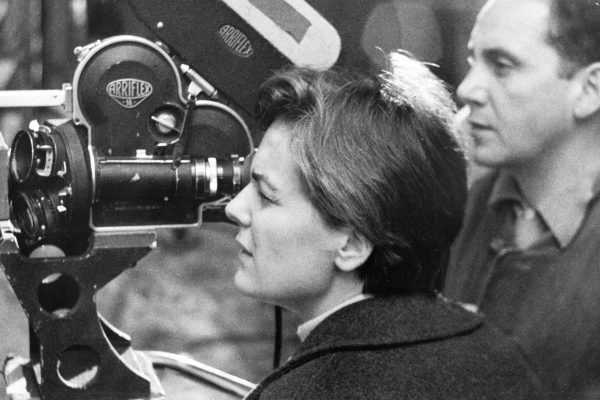
Liliana Cavani was born in Carpi, in the province of Modena.
Her father was an architect from Mantua, and her mother was a keen cinemagoer, who would take her daughter to the cinema every Sunday.
She graduated in Ancient Literature from the University of Bologna in 1959.
While a student, together with a number of friends in Carpi she founded a film club, which allowed her both to see and to show films that would not otherwise have reached the town.
After graduating, she went to Rome to attend the Centro Sperimentale di Cinematografia, attending the course on film directing.
She graduated with her short films Night Encounter and The Battle, with which she won the “Ciak d’oro” (the “Golden Clapperboard”), which the Centro awarded to the best short film at the end of the course.
While still at film school, Liliana Cavani won a public competition to enter the RAI, where she formed part of a group of functionaries (including Guglielmi, Silva, Romanò and Gennarini), driven by the desire to tell the history of contemporary Italy and the social situation of the country through the use of documentaries.
And so she went on to put her name to such works as the History of the Third Reich (1962) and The Woman of the Resistance (1965).
Immediately after that, she made Francis of Assisi, the first film produced by the RAI, starring Lou Castel, whose expressive power had struck Cavani even before Marco Bellocchio’s Fists in the Pockets had come out.
The cast also includes Mino Bellei, Riccardo Cucciolla and Marco Bellocchio.
The style of the film is sharp and hard-hitting, as Cavani adopted the same approach already used to some extent in her documentary works.
The film enjoyed enormous success, while arousing a number of different reactions (including a parliamentary interpellation by the right-wing MSI party), above all due to the entirely original way in which the saint is represented.
The film was shown hors concours at the Venice Film Festival in 1966.
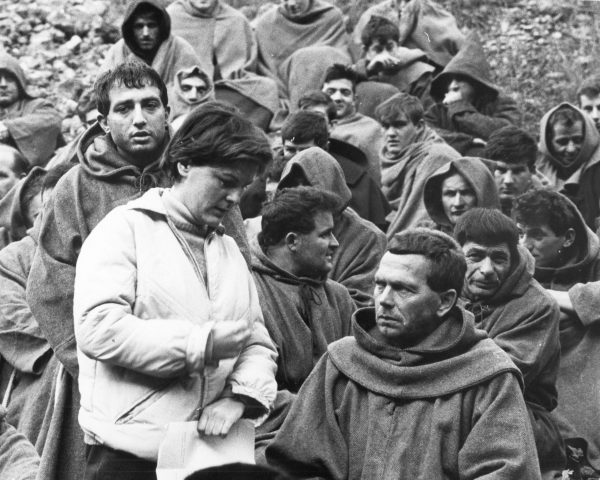
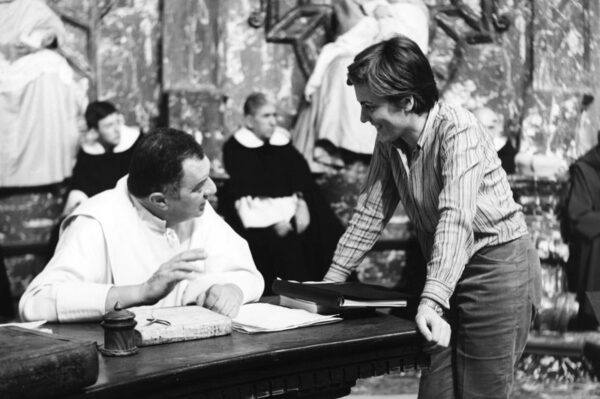
In 1968 Liliana Cavani directed Galileo, in which she highlighted the 17th-century conflict between science and religion: a fundamental issue at the heart of a debate that has never been fully resolved.
he scientist Galileo believes that truth must be demonstrated by experimentation, while the Church on the other hand tries to impose the biblical creed.
His own certainty leads Galileo to believe that he can convince the clergy with his evidence; he is wrong, and ends up in the hands of the Inquisition.
The film was censured by the RAI, as deemed to be anti-clerical. Was never broadcast.
The cast included Cyril Cusack in the lead (the Irish actor who founded the famous Abbey Theatre in Dublin), Lou Castel, Giulio Brogi and Paolo Graziosi.
Presented to compete at Venice, Galileo Galilei successfully found a distributor: Cineriz.
In 1969 she brought The Cannibals to the screen, produced by Euro Cinematografica.
While Francis of Assisi was considered to be one of the forerunners of the 1968 social unrest, The Cannibals was an explicit expression of it.
Based on Sophocles’ Antigone, the film tells the story of one girl’s struggle against the authorities preventing her from burying the bodies of the rebels killed by the police, as they serve as a warning to the population.
he brave girl, the only rebel in a town under the control of the dictatorship, is helped only by a young man who speaks an unknown language.
The example of the two is soon followed by other brave individuals.
The “cannibals” are those young people who – as the director states – “refuse civilisation outright if it cannot be anything but that of the ruling dictatorship.”
The film in fact highlights with great pathos the conflict between compassion and the law, and it is firmly rooted in the political and historical context of the times, when the issue of the “humanisation” of power was being widely examined.
The cast includes Britt Eckland, Pierre Clémenti, Thomas Milian and the writer Francesco Leonetti.
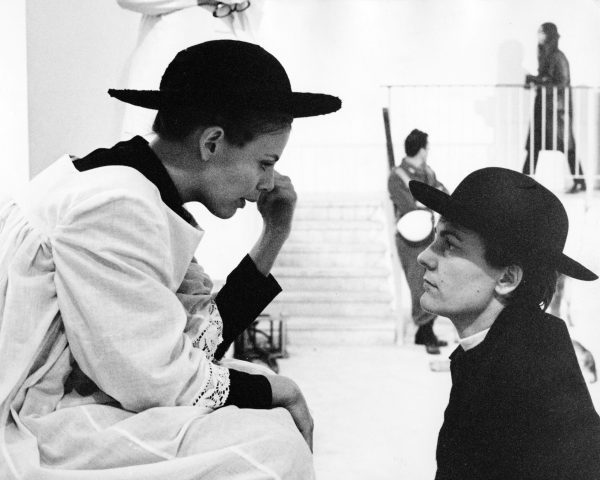
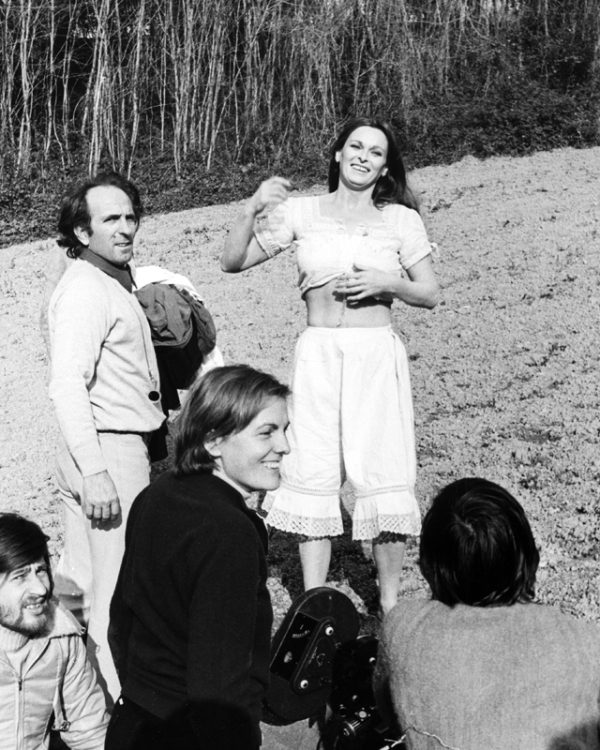
In 1971 Cavani directed The Guest, a film examining mental illness. It tells the story of a woman in a mental asylum who then tries in vain to make her way back into society.
The film is set before the ‘Basaglia’ mental health reform act and is told in terms of realist cinema, capturing the extreme discomfort of an institution that bears more than a passing resemblance to a concentration camp.
The cast includes Lucia Bosè in the lead, as well as Peter Gonzales and Glauco Mauri.
The film, made on a shoe-string budget, was screened at Venice hors concours.
In 1972 Liliana Cavani developed a passion for a classic text of Tibetan literature, Milarepa, a 10th-century mystic.
The film clearly highlights the differences of a culture so unlike our own, and yet which still reflects the universal human need to clarify one’s own raison d’etre.
The mystic experience of Milarepa described in the film is in fact a journey in the mind of the protagonist, a student who pictures himself in the role of the adventurous hermit.
The film suggests that the torment of the young Milarepa are largely the same as those that trouble the soul of a young Westerner torn between the search for knowledge and the search for power.
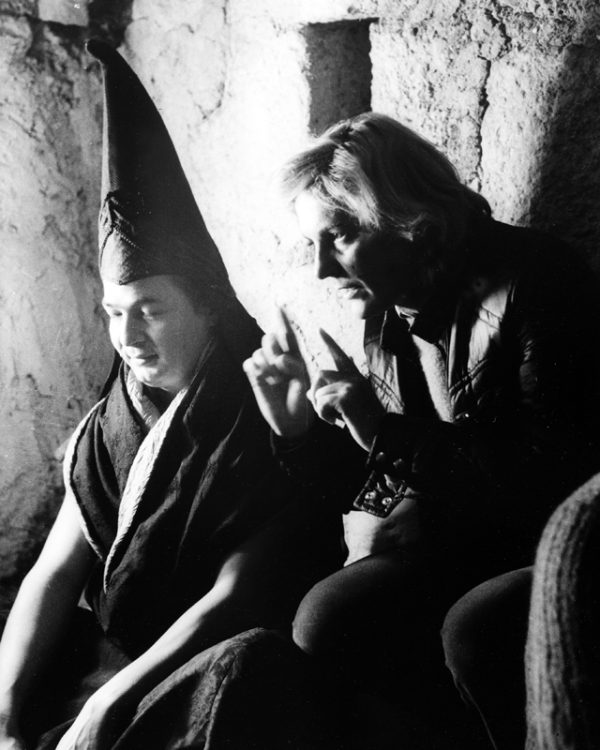
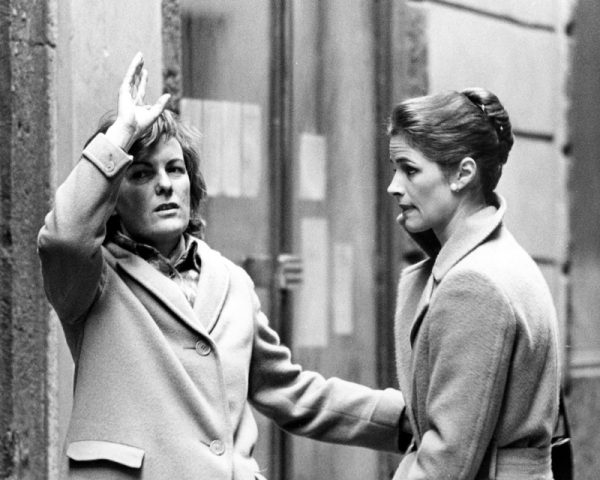
With The Night Porter (1973) Cavani was to focus on the study of an ambiguous relationship between the torturer and victim.
This meant breaking with the traditional cinematographic models according to which the protagonist cannot be a Nazi, a “hero” of evil, and caused no end of heated debate on the film, especially in France.
In Italy on the other hand, the reason behind the cry of “scandal” was largely based on the issue of the sex scenes, despite the film receiving strong approval from a number of prestigious critics.
The film looks at the ambiguity of human nature: in general terms in the relationship between the Furher and his fanatic devotees, and in particular in the mysterious relationship between torturer and victim.
Set in Vienna in 1954, the protagonist of the film is an ex-Nazi hotel porter, who by chance comes across Lucia, a concentration-camp survivor, with whom he had had a sadomasochistic relationship.
This relationship starts once again, but in the meantime, Lucia has become a dangerous witness whom other ex-Nazis want to get rid of.
The film has been at the centre of ongoing debates, yet was hugely successful with audiences both in Italy and abroad, bringing the director a great deal of international fame.
The cast includes Dirk Bogarde, Charlotte Rampling, Philippe Leroy and Gabriele Ferzetti.
In 1977 Cavani finished shooting Beyond Good and Evil.
This film dealing with the last episodes in the life of Nietzsche, focusing in particular on his relationship with Lou Andreas-Salomé.
In late 19th-century Rome, Paul Rèe meets Lou and wants to marry her, but Lou, a modern and curious Russian woman, is in Europe to study and gain new experiences.
She suggests a ménage a trois together with her friend Nietzsche.
While a clear rejection of bourgeois mores, it is one doomed to failure.
Nietzsche goes mad, Paul discovers that he is homosexual, and only Lou successfully manages to live out a new “proto-feminist” identity.
This film was also the source of much debate, and met with a degree of resistance in Italy due to a number of scenes that were deemed licentious.
The cast features Dominique Sanda, Erland Josephson and Robert Powell.
Ever since 1979, when she opened the Maggio Fiorentino with her Wozzeck, Cavani has also directed a number of different operas for a range of European theatres.
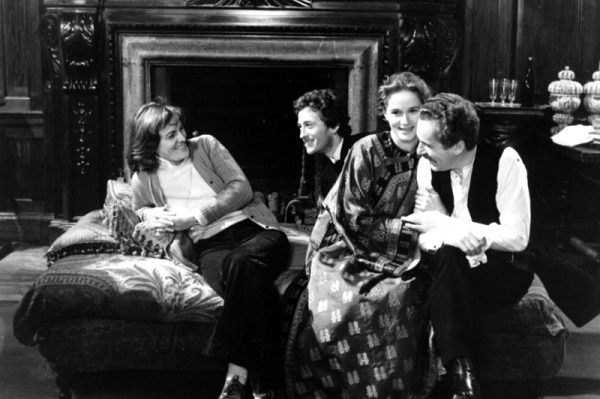
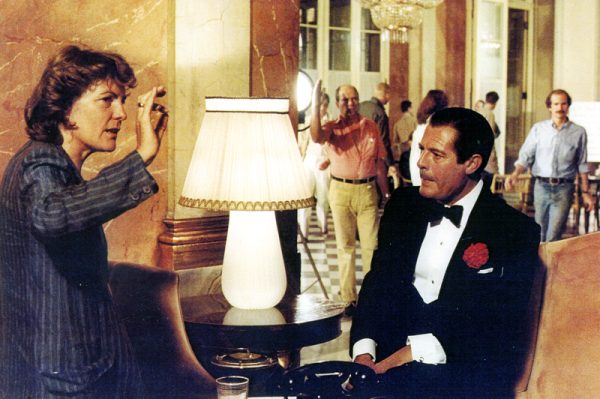
In 1980 the Italian director completed the film The Skin for Gaumont.
Set in Naples in 1944, it tells the story of a writer, Curzio Malaparte, who is entrusted by the American General Cork with the task of accompanying an American senator’s wife around the city.
The journey turns into a hellish tour through a city unable to satisfy the primary needs of its starving population, meaning that everything is for sale.
Loosely based on Malaparte’s novel, film attempts to capture the degradation and horror that the war and occupation have left in their wake.
The main idea is the demonstration of how the real losers in war are always women and children.
The cast includes Marcello Mastroianni, Burt Lancaster, Claudia Cardinale, Carlo Giuffrè, Peppino Barra as well as a vast number of Neapolitan actors.
The film’s cinema release was very successful (winning the “Biglietto d’Oro”) and competed at Cannes.
In 1985 the director made The Berlin Affair based on the novel by Junichiro Tanizachi, The Buddhist Cross.
This film brought to a close what Cavani describes as her “German Trilogy”, referring to her three films set in 20th-century Germany which was so decisive in European culture.
Set in Berlin in 1938, on the eve of the war, the film tells the story of a couple enchanted by the graces of the Japanese ambassador’s young daughter, and drawn into a perverse and mysterious sexual triangle.
The characteristics, gestures and symbols of different cultures (Germany and Japan) are drawn together by their being so fiercely resistant to modernity.
The film was presented at the Berlin Film Festival.
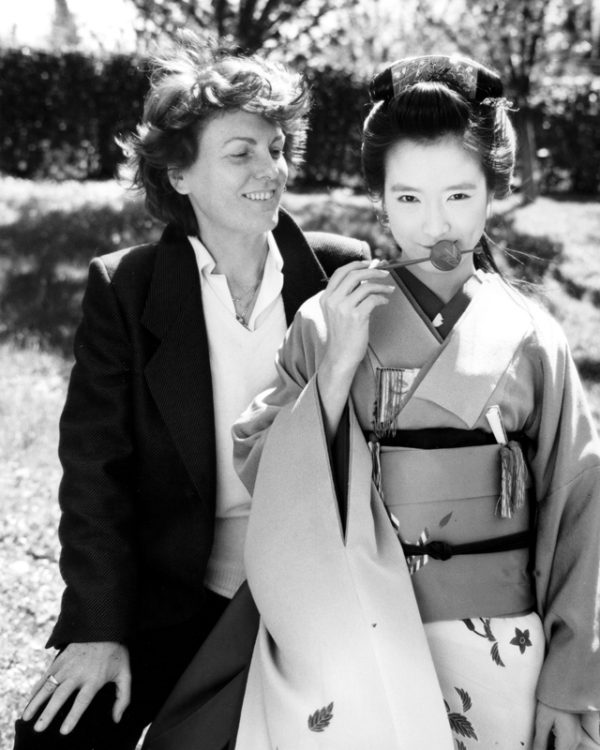
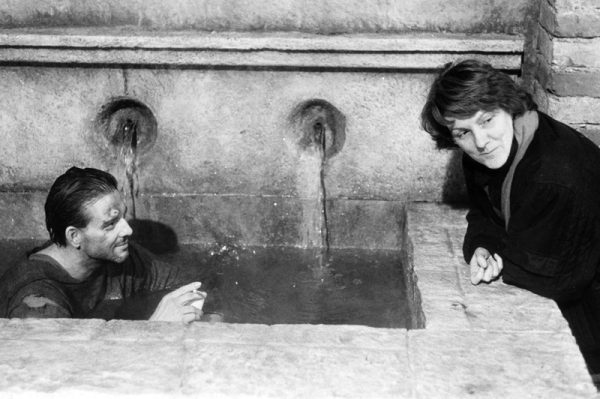
In 1989 she finished the film Francesco.
With Francesco the director fulfilled her desire to revisit that character that she had never forgotten.
As she stated, the aim was to ”…dig even deeper in the analysis of the details of such as special human experience, one so far from this time as to be timeless.”
The lead was played by Mickey Rourke together with Helena Bonham-Carter.
The film was well received by audiences, and went on to compete at Cannes.
Where Are You? I’m Here 1993, looks at the difficult world of the disabled.
Through the story of two young deaf-mutes, the director set out to show how communicating without the use of words can express great inner richness.
The cast includes Chiara Caselli, Gaetano Carotenuto, Anna Buonaiuto, Valeria D’Obici.
The film was presented hors concours at Venice.
Between 1996 and 1998 she served on the board of directors of the RAI.
In 2001, she was awarded an Honorary Degree by the LUMSA University (Libera Università Maria SS. Assunta) in Rome.
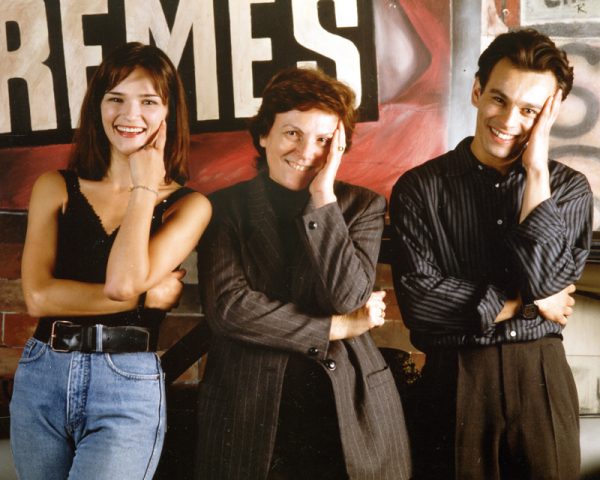
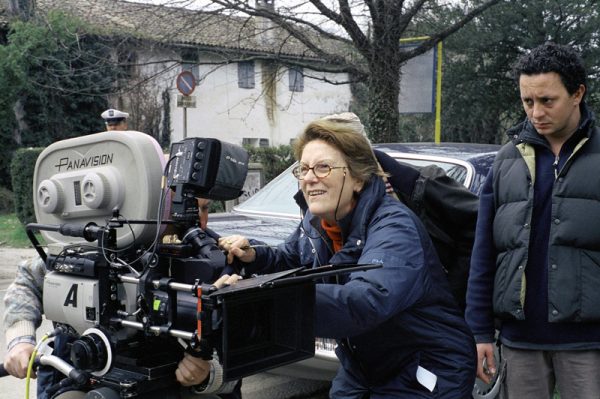
In 2002 Liliana Cavani directed Ripley’s Game (Il gioco di Ripley)
The film was offered to Cavani by the American company Fine-Line, and was based on the novel by Patricia Highsmith.
Ripley is a highly cynical character, yet full of lightness and a love of beautiful things – be they objects or houses – and who will stop at nothing to get them.
Bereft of moralistic references, he wanders around the world, “as if it were there, waiting to be enjoyed by whoever might be able to get hold of it.”
The cast includes John Malkovich, Lena Heady, Ray Winston, Dougray Scott and Chiara Caselli.
It was particularly successful in England.
It was presented hors concours at Venice.
Her meeting with Claudia Mori then led to the creation of three works for the Fiction department of the RAI. De Gasperi. The Man of Hopeexamining the Christian-Democrat statesman, Einstein (2008) a biography of the famous scientist, and finally Too Much Love (2011) a story that focuses on the problem of violence on women.
At the 66th Venice Film Festival in 2009 she was invited to be a member of the jury.
In 2012 she was the recipient of the David di Donatello “Honorary Lifetime Achievement Award” for her fifty-and-more years of work and involvement in the film industry.
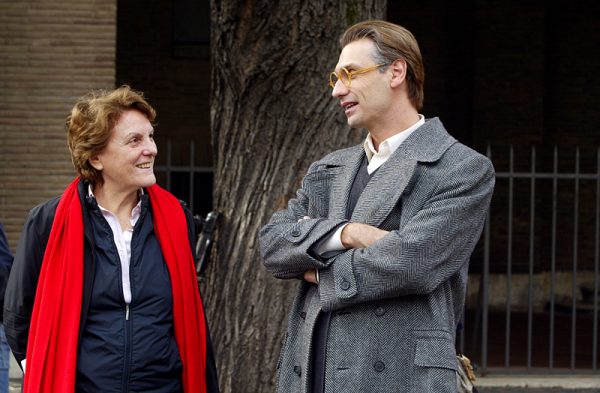
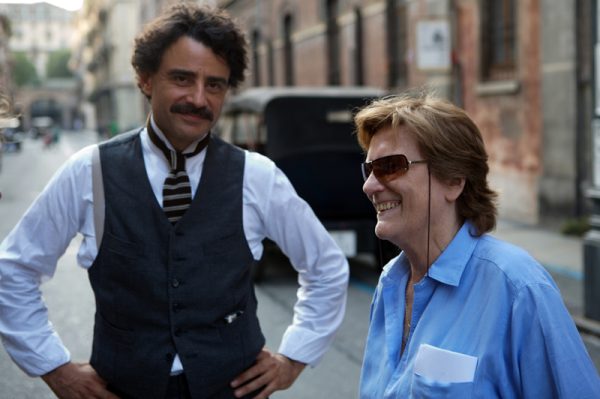
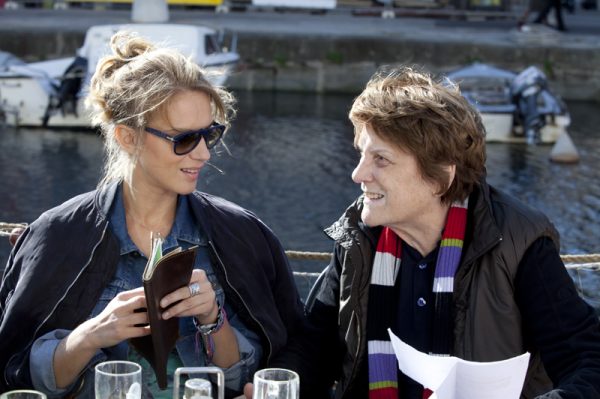
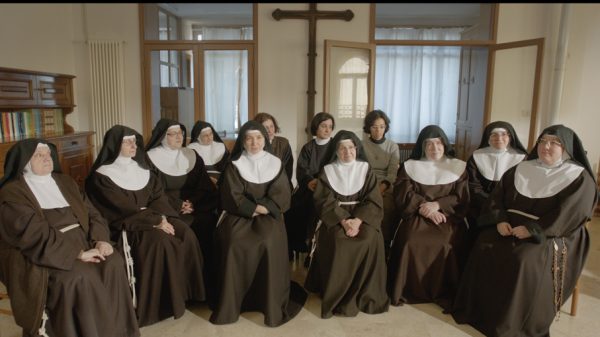
In 2012 he returned to short films with Clarisse, an interview made in a community of cloistered nuns.
The documentary was awarded the “Special Pasinetti Award” at the 69th Venice Film Festival.
In 2014 with Francesco Liliana Cavani returns for the third time in his career in film and television to read the figure of Francis of Assisi in a Rai Fiction, Ciao Ragazzi!, in collaboration with Bayerisher Rundfunk.
The drama recounts the three basic periods of the human story of Francesco, in a story arc unified not only by the development of the main character, but also the experience of two important followers Chiara and Elia, with the second covering also, at different times of the role of antagonist.
The Polish actor Mateusz Kosciukiewicz is Francesco, Sara Serraiocco and Vinicio Marchioni are Chiara and Elia.
The soundtrack by Mauro Pagani.
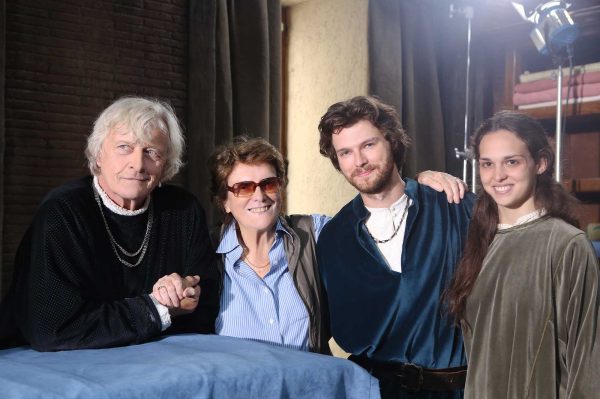
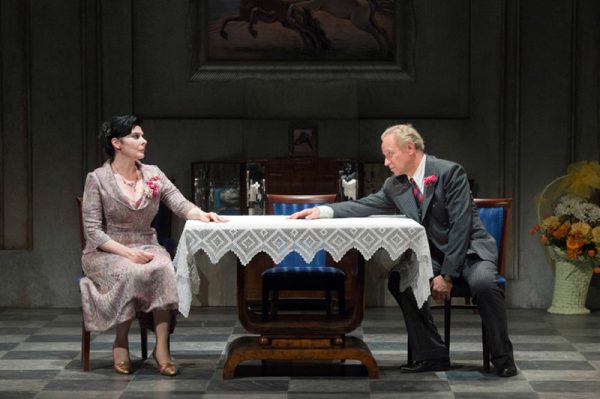
On 27 November 2015, it was conferred the Honorary Citizenship of Assisi.
In 2017, he signed his first theatre direction with Filumena Marturano, starring Jeppy Gleijeses and Mariangela D’Abbraccio.
In 2018, he continued his theatrical activity with the direction of Il piacere dell’onestà, by Luigi Pirandello, starring Jeppy Gleijeses and Vanessa Gravina.
During the 75th Venice Film Festival, he received the 2018 Robert Bresson Award, an honour conferred by the Fondazione Ente dello Spettacolo and the Rivista del Cinematografo.
The Night Porter, restored by the Cineteca Nazionale with Istituto Luce – Cinecittà, is presented in the ‘Classics’ section.
At La Scala Theatre in Milan, she signs the direction of Luigi Cherubini’s Opera Ali Babà e i 40 ladroni, staged from 1 to 27 September 2018.

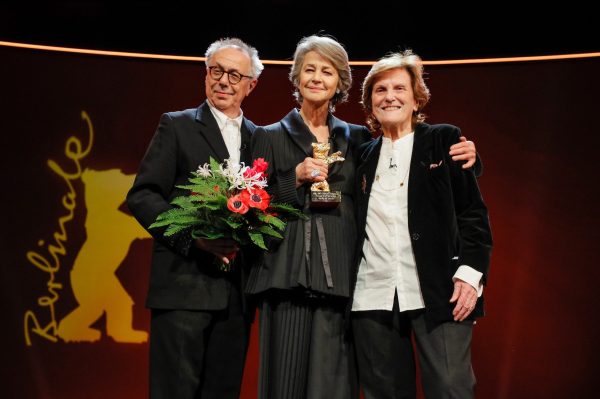
At the Berlinale 2019, Liliana Cavani presents the Lifetime Achievement Award to Charlotte Rampling.